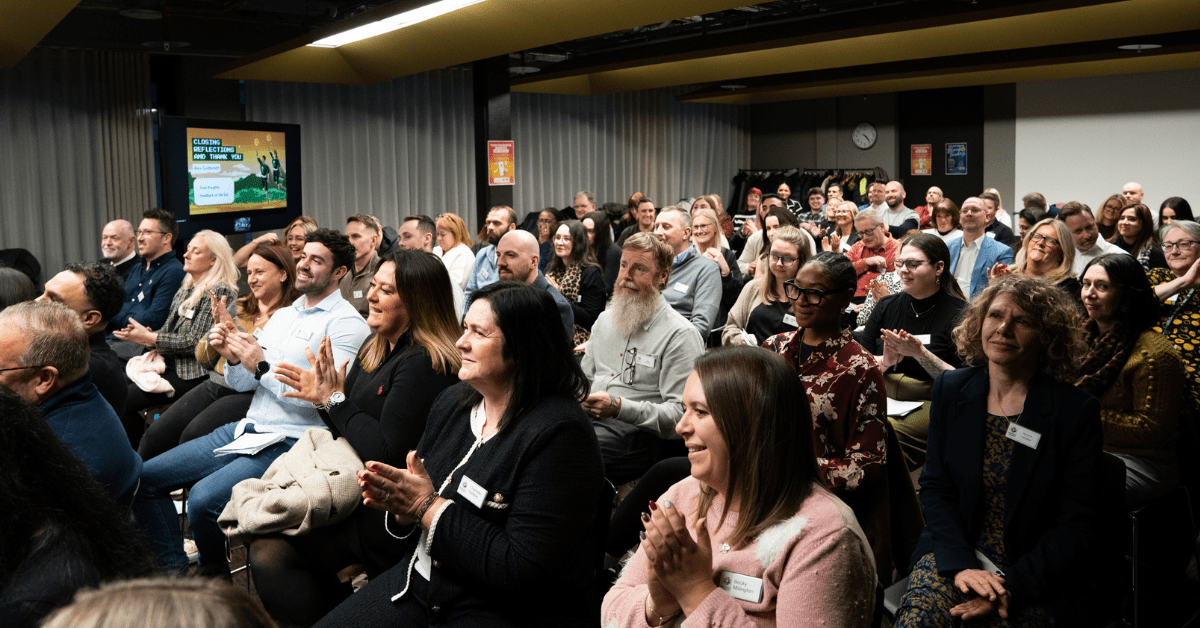Celebrating Men's Health Awareness Month 2022
With November being Men’s Health Awareness Month, we took the opportunity to catch up with some of our male colleagues here at Medigold Health, to get their take on why it’s important for men to engage more with their health, the challenges that often prevent them doing so, and their personal tips for improving health and wellbeing.
Alex Goldsmith
CEO
Why is men’s health (and Men’s Health Awareness Month) important to you?
As the CEO of a health and wellbeing organisation, it is obviously important that I champion this topic, but it’s also important on a personal level. My role can place demands on both my mental and physical health, and in order to do it as best I can, I need to be aware of my state of health and my ability to perform.
What’s the one lifestyle change you have made that has really helped your health and wellbeing?
In lockdown, I lost a stone and a half by starting regular exercise on a Peloton Bike (there are other makes of exercise bikes available!). I have managed to keep half of that off and am fitter from a cardiovascular perspective than I’ve been since my early twenties.
How can men support each other if they notice warning signs?
Men should be able to talk to each other about their health and wellbeing. Sometimes it can be done with a bit of light “banter” or encouragement, and sometimes you need to sit people down and give them some honest feedback that you hope will help them.

Martin Hughes
Client Services Director
Why is men’s health (and Men’s Health Awareness Month) important to you?
I was lazy and pretty unhealthy for many years before becoming more active and recognising the benefit that exercise has on both my physical and mental health. Exercising is now a huge part of my weekly routine and I use it to keep fit but also as a means of clearing my head.
What challenges do men face when it comes to achieving better health?
I always struggled with balancing long working hours, travelling for work and bad food choices whilst at work. It took a long time for me to understand the relationship between my choices and my health, and I think lots of men struggle in the same way.
What’s the one lifestyle change you have made that has really helped your health and wellbeing?
I had to find activities that I actually enjoyed doing. For me, I needed the social side of exercising as well as the exercise itself. You have to enjoy what you are doing, so you keep doing it.

“It took a long time for me to understand the relationship between my choices and my health, and I think lots of men struggle in the same way.”
Markus Joint
Client Relationship Manager
What challenges do men face when it comes to achieving better health?
Tackling men’s mental health is certainly one of the biggest challenges, mostly due to the outdated stereotypes that exist surrounding masculinity. We often have this perception built into us that it isn’t “manly” to reach out for help or even talk about your mental and emotional health or how you’re feeling.
How can we overcome the stigma of men asking for help?
My biggest piece of advice I can offer anyone is to talk about your feelings, however difficult that may seem. There is only so long you can bottle it all up. I would hope that we all have someone, whether a friend, parent, sibling or work colleague who can reinforce that positive step, but if not, try reaching out to your employer’s Employee Assistance Programme. Speaking about any mental health problems you’re experiencing is the most important thing you can do to tackle them. The first time I opened up to someone was definitely the most challenging, but also, on the flipside, the most rewarding.
There was a worry in my head about feeling exposed and vulnerable and also the fear of the unknown. However, I received more support than I thought was possible. Naturally, those worries didn’t automatically disappear but making the decision to talk to someone helped to reinforce more positive thinking.
Encouraging men to share their experiences with others and talk about what’s helped them is, in my opinion, the first step to supporting better mental health in men and overcoming the stigma of asking for help.
What’s the one lifestyle change you have made that has really helped your health and wellbeing?
Actively making time for myself and doing activities I enjoy has been a really positive step for me. Spending time in nature has also really helped.
I have a few favourite spots on Dartmoor where I can camp and unwind and gather my thoughts, away from the normal distractions of social media. It provides valuable respite from the day-to-day challenges that we all experience, plus I get to enjoy a few toasted marshmallows!

“Encouraging men to share their experiences with others and talk about what’s helped them is, in my opinion, the first step to supporting better mental health in men and overcoming stigma around asking for help.”
Dan Reet
Senior Account Manager
What’s the one lifestyle change you have made that has really helped your health and wellbeing?
I believe that one of the most crucial things men can do to protect their health and wellbeing is to give themselves some “me” time. That is, something to do away from high-pressure settings, such as your job or certain hobbies, which can be stressful at times. Spending time with family and friends can be really beneficial.
How can men support each other if they notice warning signs?
I believe we should now be able to speak to our colleagues and friends without being scared to ask them, “Are you okay?” They may not want to tell us right away that there is a problem, but just being there to listen to them vent or unload their worries on you is often enough.
How can we overcome the stigma of men asking for help?
Coming from a sporting background, I know that asking for help has historically been viewed as a sign of weakness among males. I believe that the more individuals who are suffering speak out about the support they have received and how it has helped them, the more others will be encouraged to do the same. We as a generation have come a long way in a short period of time in normalising conversations about men’s mental health, but there is still much more that can be done. What’s exciting is seeing how this topic is being given more attention in a variety of settings, including gyms, pubs and bars, and workplaces. Simply gathering and being ready to “talk” is a step forward from where we were ten years ago.

If you’d like to learn more about the key issues affecting men’s health and the important role employers can play in helping their employees to achieve better health and wellbeing, be sure to register for our upcoming webinar ‘Changing the narrative on men’s health – how employers can make the difference’.
Learn how Medigold Health can support you in promoting better health and wellbeing among your workforce.
Disclaimer: The information provided in this blog is for educational and informational purposes only and is not intended as a substitute for professional medical advice. Always consult a healthcare professional for personalised advice regarding your health and wellbeing.
The Latest from our Blog…
Check out our blog for all of the latest news, events and updates from Medigold Health.
-

Protecting your new recruits: Why supporting employee health matters from day one
Starting a new job is a big moment: new faces, new systems, new expectations. For employers, welcoming a new member of the team is a real opportunity to set the tone for a healthy, supportive working relationship. Each year, millions of UK employees move into new roles, whether they’re joining[...]
Read More -

Health and wellbeing in the workplace: What 2026 means for employers
As we look ahead to 2026, health and wellbeing in the workplace continues to move up the business agenda. UK employers are navigating rising absence levels, growing mental health needs, evolving ways of working and a workforce that expects more from them than ever before. As a result, employee health[...]
Read More -

Medigold Health Managers Day… why communication really matters
Late last year, we brought almost 100 managers together for a dedicated Managers Development Day with one clear focus… communication. Not communication as a corporate buzzword. But communication as it actually shows up day-to-day… in conversations, decisions, meetings, feedback, leadership announcements and all the bits in between. The day took place at our investors’, BGF, HQ in Birmingham, giving us the chance to step away from[...]
Read More





